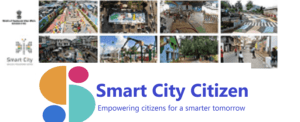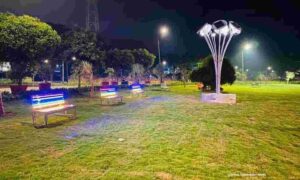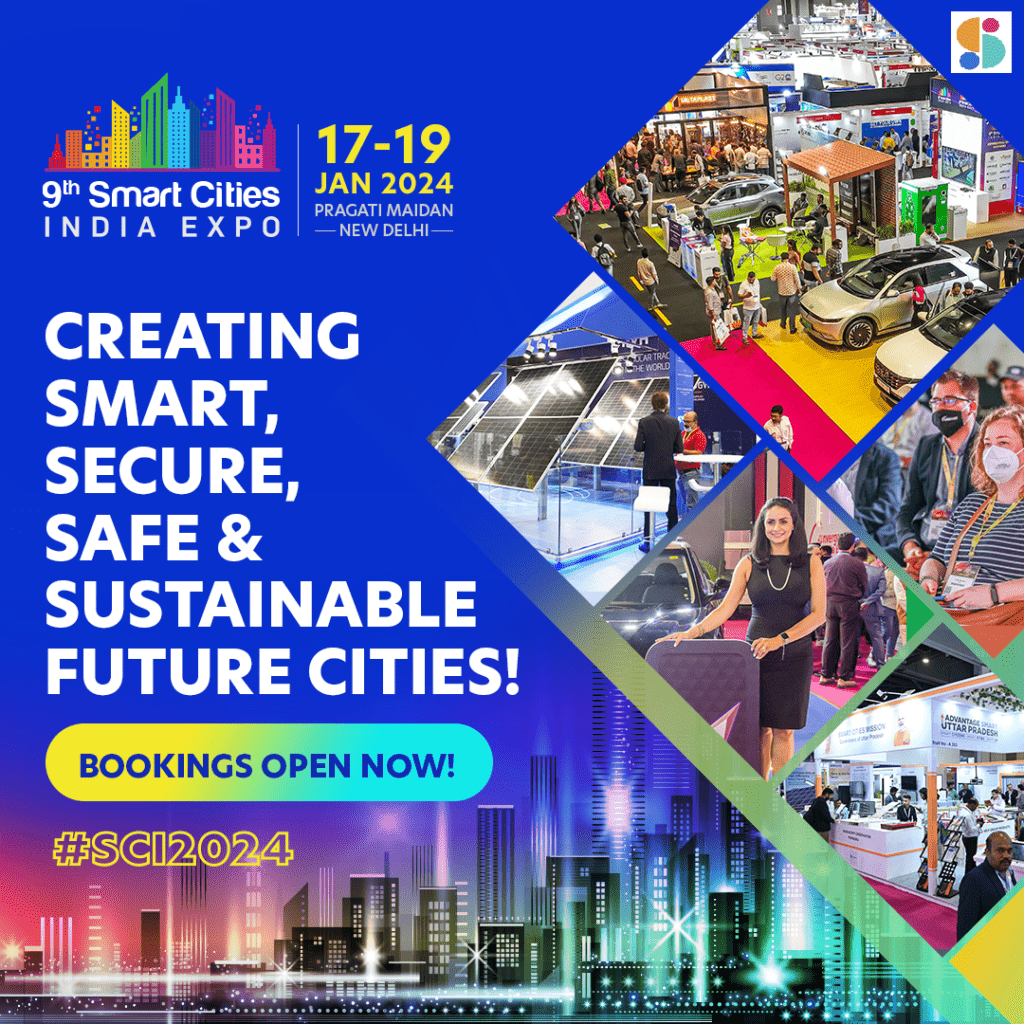Elevating Commercial Buildings in India's Smart Cities
In the rapidly evolving landscape of smart cities in India, a significant emphasis is being placed on enhancing the quality of life for urban residents. One key aspect of this transformation involves the development of smart commercial buildings that cater to the needs and aspirations of modern city dwellers. At SmartCityCitizen.com, we explore how these smart commercial buildings are revolutionizing urban spaces and improving the quality of life for citizens in India’s smart cities.
Advancing Smart Commercial Buildings in Smart Cities: Smart commercial buildings in India are not just bricks and mortar; they are technologically advanced ecosystems designed to create a seamless experience for businesses and citizens alike. The integration of data and analytics plays a pivotal role in achieving this objective.
Data and Analytics in Commercial Buildings: Data and analytics are the backbone of smart commercial buildings. They enable building managers to make informed decisions, enhance operational efficiency, and create comfortable, energy-efficient spaces for occupants. By harnessing the power of data, these buildings can:
Optimize Energy Consumption: Smart systems monitor and analyze energy consumption patterns, allowing for real-time adjustments to lighting, heating, and cooling. This not only reduces operational costs but also contributes to a more sustainable environment.
Enhance Security: Data-driven security systems ensure the safety of businesses and employees. Facial recognition, access control, and surveillance systems can be seamlessly integrated for comprehensive security.
Space Utilization: Data analytics help businesses make informed decisions about space utilization, whether it’s for hot-desking, meeting room bookings, or optimizing storage spaces.
Maintenance and Repairs: Predictive maintenance, powered by data, can detect potential issues before they become major problems, saving businesses time and money.
Citizen-Centric Design: Smart commercial buildings in India are designed with the well-being of citizens in mind. These buildings prioritize the quality of life for the workforce and contribute to a healthy work-life balance. Key features include:
Air Quality: State-of-the-art air purification and monitoring systems ensure that indoor air quality is at its best, enhancing the overall health and productivity of occupants.
Green Spaces: Rooftop gardens, green walls, and outdoor relaxation areas offer a respite from the urban hustle and bustle, promoting well-being.
Sustainable Architecture: These buildings incorporate sustainable materials and practices, reducing the carbon footprint and promoting a greener environment.
Innovative Technology: Smart commercial buildings in India embrace cutting-edge technology. Automated parking, touchless access controls, and IoT-enabled environments are becoming the norm, simplifying daily operations and enhancing convenience.
Measures for Smart Commercial Buildings:
Energy Efficiency: Implementing energy-efficient systems, such as LED lighting, smart HVAC systems, and occupancy sensors, can significantly reduce energy consumption. Additionally, using renewable energy sources like solar panels can further promote sustainability.
Water Conservation: Smart buildings can incorporate water-efficient fixtures and automated irrigation systems to reduce water usage. Advanced leak detection systems can help prevent wastage.
Waste Management: Smart commercial buildings should incorporate efficient waste management practices, such as recycling programs and smart waste bins that notify when they need emptying.
Indoor Air Quality: High-quality air filtration systems, adequate ventilation, and regular maintenance ensure excellent indoor air quality, promoting the health and well-being of occupants.
Occupant Comfort: Implementing technologies like smart thermostats, motorized shades, and customizable lighting can enhance occupant comfort. Personalized climate control and lighting can lead to increased productivity and satisfaction.
Safety and Security: Smart commercial buildings should invest in robust security systems, including surveillance cameras, access control, and alarm systems, integrated with data analytics to detect and respond to security threats promptly.
Space Optimization: Utilize data analytics to track space utilization and optimize layouts, potentially reducing the need for excess square footage and lowering operational costs.
Key Features of Smart Commercial Buildings:
IoT Integration: Smart buildings leverage the Internet of Things (IoT) to connect and control various systems. This includes sensors that monitor everything from temperature and humidity to occupancy and security.
Building Management Systems (BMS): BMS enables centralized control and monitoring of a building’s systems, including lighting, HVAC, and security, optimizing their performance for energy efficiency.
Smart Lighting: Energy-efficient LED lighting systems can be programmed to adjust brightness and color temperature based on occupancy and natural light, reducing energy consumption.
Automated HVAC Systems: Smart HVAC systems adjust temperature and ventilation based on occupancy and weather conditions, minimizing energy waste.
Occupancy Sensors: These sensors detect when spaces are occupied, enabling lighting and HVAC systems to adjust accordingly. This reduces energy consumption when rooms are unoccupied.
Facial Recognition and Access Control: Advanced security features use facial recognition technology and access control systems to ensure secure and efficient entry into the building.
Green Building Materials: Sustainable and eco-friendly building materials, including low-VOC paints, recycled materials, and energy-efficient windows, are used to reduce the building’s environmental impact.
Real-time Analytics: Data analytics provide insights into energy consumption, space utilization, and other key performance metrics. This data informs decision-making for efficiency improvements.
Mobile Apps: Building occupants and managers can control various aspects of the building through mobile apps, including adjusting lighting and temperature settings, booking meeting rooms, and receiving notifications and alerts.
Collaborative Spaces: Smart commercial buildings often feature flexible and collaborative spaces designed to enhance creativity and teamwork, catering to modern work trends.
Renewable Energy Integration: Smart buildings can harness solar and wind energy through renewable energy systems, contributing to reduced energy costs and a lower carbon footprint.
By implementing these measures and integrating these features, smart commercial buildings not only enhance sustainability and energy efficiency but also create a comfortable and productive environment for occupants. These buildings are at the forefront of urban development, leading the way toward more efficient, connected, and eco-friendly cities.
Conclusion: In India’s smart cities, smart commercial buildings are not just structures; they are living, breathing entities that prioritize the quality of life for the citizens they serve. Data and analytics play a pivotal role in shaping these buildings, making them more efficient, sustainable, and citizen-centric. As our cities continue to evolve, smart commercial buildings are leading the way, creating a brighter, more technologically advanced future for all.
Keywords:
- Smart commercial buildings
- Smart cities in India
- Data and analytics
- Quality of life
- Modern urban living
- Commercial real estate
- Sustainable architecture
- Innovative technology
- Citizen-centric infrastructure
Smart Buildings
Smart Residence
Retail & Recreational Spaces
Municipal Buildings
Parks and Greenspaces


Visakhapatnam Smart City: Innovative Park Development unveiled..

Smart Industries
TAKE PART IN CITIZEN ENGAGEMENT PROJECTS
Our Citizen Engagment Team invites Citizens Opinion / Particiaption in Surveys through email, direct to your inbox. We also email about Smart City Projects. Special Events / Gatherings in your city.


